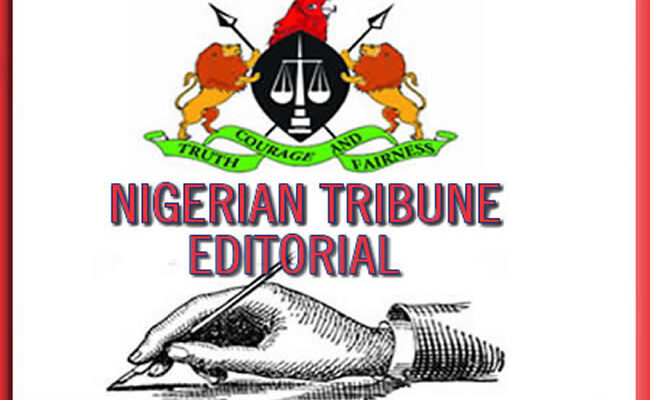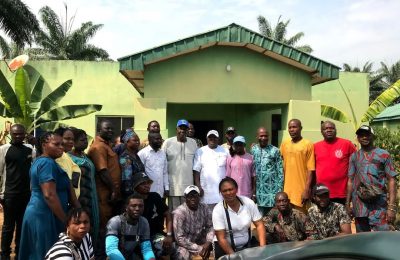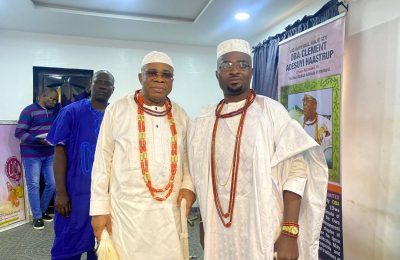

LIKE their counterparts around the world, Nigerian politicians regularly make inciting statements, enabled by the apparent lack of consequences for such utterances. That may well explain the recent statement by the Minister of the Federal Capital Territory (FCT), Barrister Nyesom Wike, while reacting to the political crisis in Rivers State. Speaking in Port Harcourt, the state capital, during the recent congress of the Peoples Democratic Party (PDP) in the state which some members of the party deemed sectional, the minister sounded a note of warning to members of the PDP Governors Forum who had called on him to let the state governor, Mr. Siminalayi Fubara, take charge of the party’s structures in the state. He told his supporters: “Let me assure all of you: not while we live will anybody take away the structure of PDP from us. But let me tell people, I hear some governors who say they will take over the structure and give back to somebody, I pity those governors because I will put fire in their states. When God has given you peace, you say you don’t want peace – anything you see, you take.” Surprisingly, in spite of the explicit threat of violence inherent in this statement, the police studiously ignored calls by concerned stakeholders to invite the minister for an interrogation.
To be sure, Minister Wike, just like any politician in the country, has the right to purvey his political views, and to criticise those he feels are a threat to his political ambitions. Besides, the party to which he belongs, the PDP, although the leading opposition party in Nigeria, is plagued with crisis and nothing within the statute books precludes the minister, or indeed anyone else, from giving vent to the expression of frustration over the state of affairs within the party, or even in the country as a whole. The right to hold opinion, even controversial ones, is enshrined in the Nigerian constitution, and is not impeached by the mere fact that someone else disagrees with them. Indeed, the contestation of ideas in such a way that the most compelling vision eventually predominates is one of the cardinal features of democracy. What the law, logic and democratic practice do not prescribe, let alone allow, however, is incitement to violence or threat of violence of any kind.

It is galling that Mr. Wike, a former local government chairman, two-term governor and past and serving minister, and a lawyer to boot, openly threatened violence if his hold over the party structure in Rivers State is threatened. To “put fire” in certain states, as the minister declared, cannot be construed in any positive sense. It speaks of an intent to threaten the peace of sub-nationals within the Nigerian fabric, and create an unmanageable situation for the political leadership in those states. This is, we dare say, utterly provocative, reprehensible and irresponsible. As a member of such a distinguished judicial organ as the Body of Benchers, Minister Wike is surely not unaware of the express provisions of Nigerian law regarding incitement to violence. Indeed, the government in which he serves is on record as threatening to sue even a newspaper house for alleged incitement.
To be sure, we do not hold a brief for Mr. Wike’s political opponents or his party. Whether or not the party plays its expected opposition role within the polity is not of the slightest interest to us, particularly because nothing stops the smaller parties from playing such a role if the party expected to play it decides to be busy doing something else. There is something inherently undemocratic in trying to force political parties officially designated as opposition parties to play that role. In any case, the civil society and the media in Nigeria are quite vibrant and adept at putting the government of the day on its toes. Therefore, whatever political disputes Mr. Wike has with his colleagues within the PDP or elsewhere is immaterial, as long as they do not take such disputes as an opportunity to make incendiary comments in the polity.
Even if it is argued that Mr. Wike’s threat to set fire to certain states is merely symbolic or hyperbolic, the context of political strife within the state and beyond precludes making such utterances. Besides, the minister made his intent quite clear when he averred that those who did not want peace should endure whatever they saw as a result. This is incitement writ large: no two ways about it. No Nigerian, let alone a high-ranking government official, has the right to threaten chaos and mayhem in any part of Nigeria, and it is instructive that across the country, many ordinary citizens are currently undergoing prosecution in the court of law for making statements deemed capable of causing crisis within the country. No matter how highly placed, politicians need to be guided in their utterances; they should not take the patience of the long-suffering Nigerians for granted.
If any indication were needed regarding the attitude to inciting utterances in the civilised world, the case of Amaka Sonnberger, a Nigerian-born, self-confessed Canadian citizen who is currently under prosecution by the Canadian authorities for threatening to poison members of the Yoruba and Benin ethnic groups of Nigeria, provides a poignant example. According to analysts, Sonnberger risks a two-year jail term in the country or deportation if found guilty of the charge against her. Section 319 (1a) of the Canadian Criminal Code states that: “Everyone who, by communicating statements in any public place, incites hatred against any identifiable group where such incitement is likely to lead to a breach of the peace is guilty of (a) an indictable offence and is liable to imprisonment for a term not exceeding two years or (b) an offence punishable on summary conviction.” Indeed, even if inciting statements were legal, the combustible texture of Nigeria’s socioeconomic milieu certainly calls for circumspection, toleration of dissenting views, and discipline in political conduct.
We condemn the utterances by the FCT Minister and urge politicians like him, and indeed Nigerians of all categories, to be mindful of the things they say; to let reason rather than brute force prevail in their public utterances, so that the country is not imperiled by their actions. On their part, the police should always investigate and prosecute all reported cases of incitement. There is simply no context in which inciting statements are tolerable.
Read Also: Ibadan Circular Road corridor residents appeal to Makinde over setback








